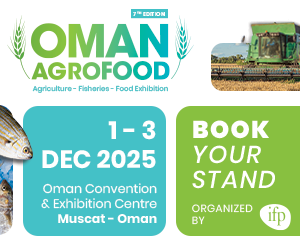As traditional food production models face mounting challenges — from biodiversity loss and resource depletion to shifting global diets — the agricultural sector stands at a pivotal crossroads. Emerging markets are now stepping forward, not just as producers, but as drivers of innovation and sustainability.
Agriculture is the primary cause of biodiversity loss, endangering 86% of species already at risk, according to the UN. At the same time, smallholder farmers — who supply nearly a third of the world’s food — operate with limited access to finance, technology, and resilient infrastructure. This leaves the food supply chain highly vulnerable to climate shocks and market volatility.
On the consumption side, global diets have tilted toward ultra-processed, calorie-dense foods, fueling rising rates of obesity and chronic diseases. With the world’s population forecast to reach 10.3 billion by the 2080s, the need for sustainable, nutritious food sources is urgent.
What’s Driving Change?
The Emerging Consumer Class
An expanding middle class in emerging markets is demanding healthier, responsibly sourced food. This shift is triggering innovation throughout the food value chain.Technology and Agri-Tech Innovation
Precision farming, alternative proteins, smart irrigation, and AI-driven supply chains are reshaping agriculture. The agtech market is set to double, reaching USD 49 billion by 2030.Regulatory Support for Sustainability
Global initiatives like the EU Green Deal and carbon pricing are fostering a regulatory environment that encourages sustainable agriculture and investment.
Financing the Agricultural Transition
The World Economic Forum estimates that up to USD 350 billion annually is needed by 2030 to scale regenerative and resilient agriculture — yet agriculture, forestry, and land use currently attract less than 4% of climate finance.
To close this gap, financial institutions are backing projects in regenerative farming, biodiversity restoration, and sustainable food supply chains. Blended finance, public-private partnerships, and sustainability-linked incentives are becoming essential tools to attract private investment.
Why Emerging Markets Matter
With fast-growing populations, urbanization, and resource wealth, emerging economies are well-positioned to lead the next wave of agricultural transformation. They are rapidly adopting climate-smart practices, digital tools, and precision farming technologies.
While developed economies will continue to drive innovation, policy, and research, emerging markets hold the key to expanding global food supply, securing nutrition, and ensuring a fair, sustainable food system for the future.
Source: M&G










































































